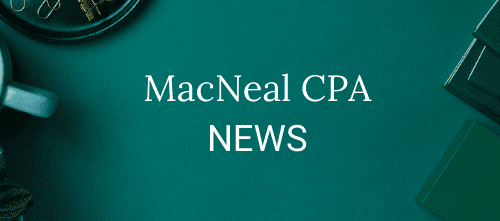Why, as a business owner, doing taxes yourself might not make sense.
As a business owner, you’re probably used to wearing a lot of hats. That kind of “get it done” attitude makes for successful entrepreneurs (and successful businesses). But there’s one major area of your business that requires a very specialized hat—and that’s doing taxes yourself.
While you certainly can do your taxes yourself, as a business owner, that doesn’t necessarily mean you should. Let’s take a look at some of the key reasons why doing taxes yourself might not be the best thing for you and your business:
1. Numbers Just Aren’t Your Thing …
Not everyone is a numbers person. And if you’re not a numbers person? Doing taxes yourself probably isn’t a good idea.
There’s a lot of complexity involved, and if numbers aren’t your thing, the monotony of all the math can feel overwhelming.
2. Or Numbers Are Your Thing, but You Don’t Have the Bandwidth for Taxes
Even if numbers are your thing, it doesn’t necessarily mean that doing taxes yourself is the right move.
Doing your business taxes is a time-consuming affair. And all that time you’re spending on your taxes? That’s time you’re not spending on your business, billing clients or bringing in revenue.
Hiring a tax professional frees up your time and energy to work on your business while they work on your taxes.
3. Business Taxes Are More Complex than Personal Taxes
If your personal finances are fairly straightforward, then filing your personal taxes can be pretty simple, which is why so many people choose to DIY them.
But business taxes? They’re another beast entirely. Depending on your business structure, you may need to consider payroll taxes, profit-and-loss (a.k.a. P&L) statements, issuing 1099s to contractors … the list goes on.
As a Tax professional with significant experience navigating each step of the complex process that is business taxes, you don’t have to spend the time and energy figuring out how to navigate it yourself.
4. Tax Laws Are Always Changing
Tax laws are always changing and evolving—and unless you’re a tax accountant, you’re probably not going to know about all those changes when it comes time to file.
Great Example – The Cares Act and the constant tax code update with the various COVID relief.
Not knowing current tax codes can increase the chance that you’ll make a mistake on your return—which, again, can cause major issues with the IRS. But it goes further than that. It can also cause you to miss out on deductions and credits you may be eligible for, which can cause major issues with your bank account.
It’s a tax professional’s job to keep their finger on the pulse of what’s happening in the tax world, including any new laws, credits or deductions. And when you work with US, you’ll know that your taxes are being done in accordance to the most up-to-date tax laws (and that you’re pocketing as much of your money as possible).
5. Making Mistakes on Your Taxes Is Costly
The IRS is not a mistake-friendly branch of the government. When you submit your taxes, they expect them to be completely accurate, and if they’re not, it can cost you a lot of time, hassle, energy and cash.
6. The Internet Can Be an Unreliable Place
If you do your business taxes yourself, you’re going to have questions, like:
Which forms do I need to file?
What are my tax rates?
When are the deadlines for business filing?
And when you need those questions answered, chances are, you’re going to head to the internet. 1But the internet can be an unreliable place. There is so much information out there, and it can be hard to sift through out-of-date or inaccurate info to find the answers you need.
Doing Taxes Yourself Is Your Call—but Come Tax Time, Consider What’s Right for Your Business
Bottom line? If you feel strongly that you want to manage and file your own business taxes, you can certainly go that route.
But keep in mind that doing taxes yourself is a big job in your business, and if you’re going to do them, you need to dedicate the time, energy and resources into getting them done right. If not, it’s definitely in your (and your business’) best interest to partner with a tax professional.

